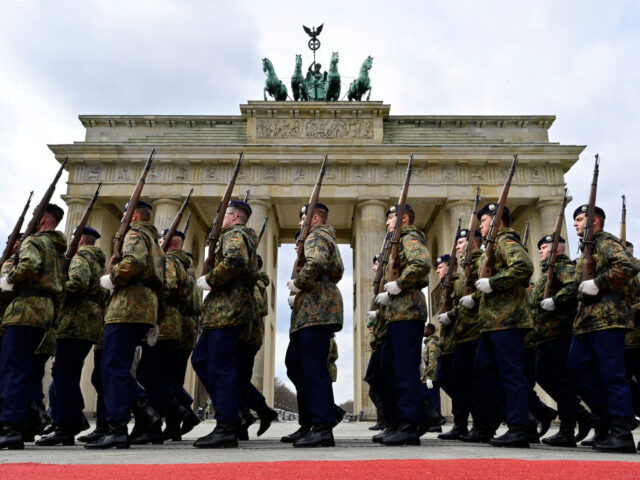Nearly half of the German public are living in fear of a potential attack from Russia, a survey published this week found.
Amid heightened rhetoric and warnings of the Ukraine proxy war spilling over into a full-blown conflict between Europe and Russia, 46 per cent of Germans are “worried” about Moscow launching an attack on their country.
The INSA survey conducted for the BILD tabloid, which polled 1,001 members of the public, found conversely that 44 per cent were not currently afraid of a Russian assault.
According to the poll, backers of left-wing parties were the most concerned at 55 per cent, followed closely by supporters of the centrist neo-liberal Christian Democratic Union (CDU) of former Chancellor Angela Merkel.
Supporters of populist parties on the left and right — the upstart anti-immigration leftist party of Sahra Wagenknecht and the conservative-nationalist Alternative for Germany (AfD) — were least likely to believe a Russian attack was likely.
Meanwhile, the survey also found that four out of ten Germans (39 per cent) have already begun to stock up on emergency supplies in case of war breaking out, compared to 56 per cent who said they have not done so.
Concerningly, just one in six polled said that they knew where to go in case of an emergency. This, the paper noted, was likely a result of the fact that of Germany’s 600 air raid shelters, not one is currently operational, with the government ending maintenance of the war bunkers in 2007.
The growing level of concern among the German public about a potential war with Russia comes amid increasingly dire warnings from leading political and military figures in NATO.
While German Defence Minister Boris Pistorius said earlier this month that it was unlikely for a war to break out in the immediate future, he said in December that the European Union should prepare for war by the end of the decade.
Additionally, leaked German military documents this month warned of the possibility of Moscow using the transition following the upcoming presidential election in the United States to make a move to seize the Suwałki Gap, a strategically important corridor between Lithuania and Poland which separates Belarus and the Russian enclave of Kaliningrad.
Other nations have begun to warn of the possibility of war, Swedish Civil Defence Minister Carl-Oskar Bohlin telling his citizens: “There could be war in Sweden.”
This week, NATO Lieutenant General Alexander Sollfrank said that the alliance has lost the credibility to deter strikes against member states since the end of the Cold War. He went on to warn that Europe should begin preparing for missile and drone strikes on major cities as well as attacks on critical infrastructure.

COMMENTS
Please let us know if you're having issues with commenting.